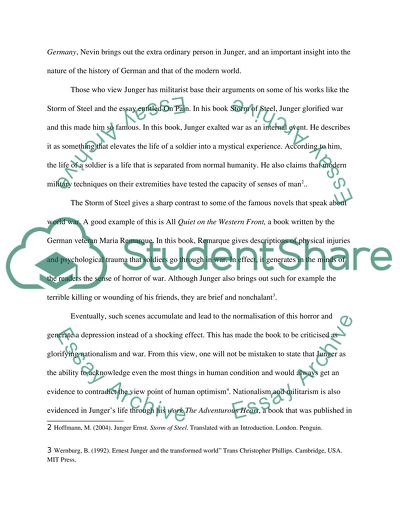Cite this document
(“Ernst Junger Essay Example | Topics and Well Written Essays - 1000 words”, n.d.)
Retrieved from https://studentshare.org/history/1436510-a-historiographical-essay-on-ernst-junger
Retrieved from https://studentshare.org/history/1436510-a-historiographical-essay-on-ernst-junger
(Ernst Junger Essay Example | Topics and Well Written Essays - 1000 Words)
https://studentshare.org/history/1436510-a-historiographical-essay-on-ernst-junger.
https://studentshare.org/history/1436510-a-historiographical-essay-on-ernst-junger.
“Ernst Junger Essay Example | Topics and Well Written Essays - 1000 Words”, n.d. https://studentshare.org/history/1436510-a-historiographical-essay-on-ernst-junger.


